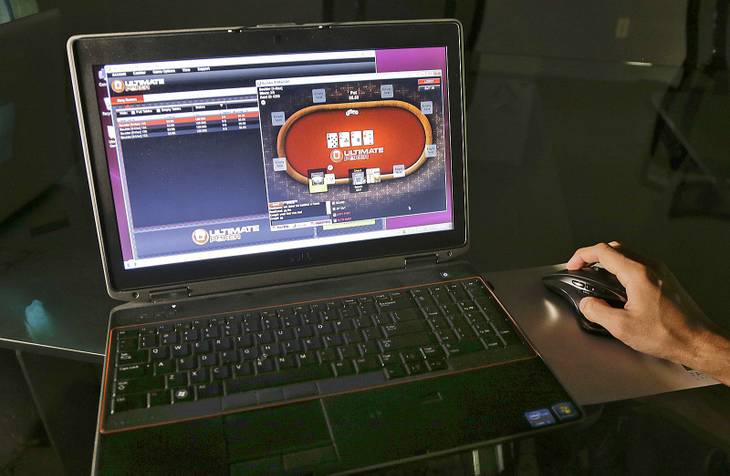Ultimate Gaming, one of Nevada’s three legal online poker providers, announced today that it’s ending operations in the state.
The move comes about two months after Ultimate Gaming withdrew from New Jersey.
In a news release, the company referenced some of the online gaming industry’s overall struggles as reasons for its closure: namely, sluggish revenue and a limited pool of players.
“As has been the case in other jurisdictions, online poker revenues in Nevada have fallen far short of original projections,” Ultimate Gaming Chairman Tom Breitling said in the release. “Moreover, the state-by-state approach to online gaming has created an extremely cost-prohibitive and challenging operating environment. These factors have combined to make the path to profitability very difficult and uncertain. Consequently, we have decided to cease operations.”
The closure is effective immediately upon complying with regulatory requirements, according to the news release.
Breitling said the company is “working closely” with state gambling regulators to ensure a “smooth transition” for customers. Players with questions about their account can click the “support” option at ultimatepoker.com.
Ultimate Gaming, an affiliate of locals gaming operator Station Casinos, became the first in the country to offer fully legal online gambling through its Ultimate Poker website in 2013. Its departure now leaves Caesars Interactive’s WSOP.com and the South Point’s Real Gaming as Nevada’s only legal online poker sites.
“It’s unfortunate — there are a lot of good people at Ultimate that worked hard and diligently in the space,” said Caesars Interactive spokesman Seth Palansky. “We haven’t really assessed the impact of their closing on our business, but we should assure the public that we remain fully operational to Nevada residents and visitors. I guess if there’s anything good about this, it’s that hopefully WSOP.com can increase liquidity as a result.”
Though WSOP.com faces the same challenges as the rest of the industry, Palansky said Caesars has “always been long on this opportunity” and that, as with land-based casino gambling, it will take time for online gaming to find its footing. He said Caesars is still “very committed and bullish on the opportunities of this space.”
Nevada online poker revenue has been underwhelming. In September, the game brought in just $693,000 for the state — its worst month on record. Online poker’s best month was in June, when the World Series of Poker helped the game record more than $1 million in revenue for the first time.
“Needless to say, the online gaming market has been a considerable disappointment,” said Marc Falcone, Station’s chief financial officer, on a conference call when the company reported its third-quarter earnings earlier this week. At least part of Station’s third quarter loss was related to Ultimate Gaming’s closure in New Jersey.
Eilers Research Managing Director Adam Krejcik said that online poker is a “really difficult, competitive market” and that “there’s probably really only room for one company” in Nevada right now. That’s because the size of the market is limited as long as gamblers can’t legally play with people outside the state, he said.
New Jersey and Delaware are the only other states with a regulated online gaming industry. Earlier this year, Gov. Brian Sandoval signed an agreement that would allow people in Nevada and Delaware to play online poker with one another. It’s expected to become reality sometime in the spring of next year.
But with a population smaller than Clark County’s, Delaware is unlikely to have a huge impact on the size of Nevada’s online poker market. Though Sandoval has spoken to New Jersey about a similar agreement, nothing has been announced yet.
